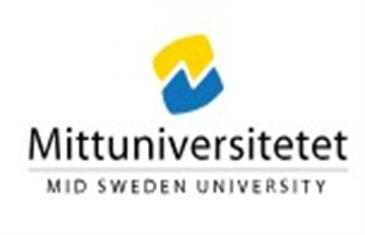Quaid-e-Azam University Partners with Cambridge University | Pakistan Research Collaboration
November 11, 2025 • 656 Views

Study abroad expert advice
Don't waste time! just fill the form to get help.
In a historic development for Pakistan’s academic and research landscape, Quaid-e-Azam University (QAU) Islamabad has signed a landmark research collaboration agreement with the prestigious University of Cambridge. This partnership is set to transform Pakistan’s higher education sector, strengthen its research ecosystem, and open up global opportunities for students, researchers, and industries.
Key Highlights of the Collaboration
- The collaboration focuses on cutting-edge research in materials science, clean energy, aerospace, healthcare, and digital technologies.
- The MoU was officially signed in London, with Federal Minister Ahsan Iqbal witnessing the historic event.
- Pakistan has allocated Rs 3.5 billion to establish the Institute of Materials and Emerging Sciences, alongside US $0.7 million for joint research projects, faculty-student exchanges, and technology transfer programs.
- The first 100 days of this initiative will focus on research exchanges, prototype development, and industry partnerships, laying the foundation for long-term innovation and collaboration.
Check: Chinese Government Scholarship 2026-27 for Pakistani Students
Why This Partnership is a Game-Changer
- Elevating Pakistan’s Global Research Profile - By combining Cambridge’s world-class research capabilities with QAU’s national academic excellence, Pakistani researchers gain access to international laboratories, expert networks, and cutting-edge innovation opportunities.
- Bridging the Gap Between Academia and Industry - This partnership emphasizes turning research into real-world solutions. From lab discoveries to commercial products, it encourages innovation-driven entrepreneurship and strengthens Pakistan’s knowledge economy.
- Developing Global Talent - The faculty and student exchange programs will provide Pakistani researchers with international exposure, skills, and collaboration opportunities, ensuring that local talent becomes globally competitive.
- Advancing Pakistan’s Knowledge Economy - Minister Ahsan Iqbal described the initiative as a “historic step toward building Pakistan’s knowledge and innovation-driven economy,” aligning with national priorities in education, technology, and industry.
Benefits for Students, Researchers, and Industry
Focus Area | Benefits |
Research & Innovation | Access to international labs, advanced research facilities, and cutting-edge technologies |
Students & Faculty | Opportunities for global exposure, joint research, skill development, and networking |
Industry Collaboration | Technology commercialization, startup incubation, and industry-academia linkages |
National Competitiveness | Strengthened Pakistan’s position in global research and innovation rankings |
Challenges to Watch
- Translating Research into Results: MoUs are a starting point; the real impact depends on delivering prototypes, patents, and commercial applications.
- Sustained Funding & Infrastructure: Long-term success requires consistent investment, proper governance, and world-class research
- Collaboration Dynamics: Effective cross-border partnerships demand alignment in research priorities, intellectual property management, and cultural synergy.
- Industry Engagement: Strong linkages with local and global industry players are essential to bring innovations to market.
What to Expect Next
- Launch of joint research projects and international exchange programs.
- Establishment of the Institute of Materials and Emerging Sciences at QAU.
- Development of industry partnerships, technology transfer programs, and startup incubation.
- Contributions to Pakistan’s innovation ecosystem, including accelerators, funding, and policy initiatives.
Conclusion
The QAU-Cambridge partnership is more than a ceremonial signing—it is a strategic initiative that could redefine Pakistan’s research and innovation landscape. By focusing on materials science, clean energy, and digital technologies, this collaboration positions Pakistan as a hub for cutting-edge research, innovation, and talent development.
For students, researchers, and policymakers, this is a golden opportunity to engage in world-class research, gain global exposure, and contribute to national growth through innovation.
Related News
Consultants for United Kingdom
-

Joji higher education services, karachi -

Nsa consultants & legal advisors -
.jpg)
Heds international -

Mr consultants -

Education links -

Abn overseas education -

Fes higher education consultants pvt ltd. -
.png)
Career o'clock -

Bada global education (pvt) ltd -
.png)
Edfolio international education counselors -
 (1).jpg)
Aspire link consulting pvt limited -
.png)
Education abroad consultants
Latest Scholarships
-
 USA
USASanta Fe Institute UCR Program 2026 in USA Fully Supported Undergraduate Research Opportunity
-
 Australia
AustraliaSwinburne University Scholarships 2026 for International Students, Australia
-
 Sweden
SwedenMid Sweden University Tuition Fee Scholarship Study in Sweden with Financial Support
-
 Australia
AustraliaGriffith University Research Scholarships 2026 in Australia – Fully Funded


 Scholarships 2026 – Fully Funded Oxford Degrees (36).jpg)
 Scholarships 2026 – Fully Funded Oxford Degrees (35).jpg)
 Scholarships 2026 – Fully Funded Oxford Degrees (32).jpg)
 Scholarships 2026 – Fully Funded Oxford Degrees (30).jpg)
 Scholarships 2026 – Fully Funded Oxford Degrees (29).jpg)

 Scholarships 2026 – Fully Funded Oxford Degrees (26).jpg)
 Scholarships 2026 – Fully Funded Oxford Degrees (24).jpg)